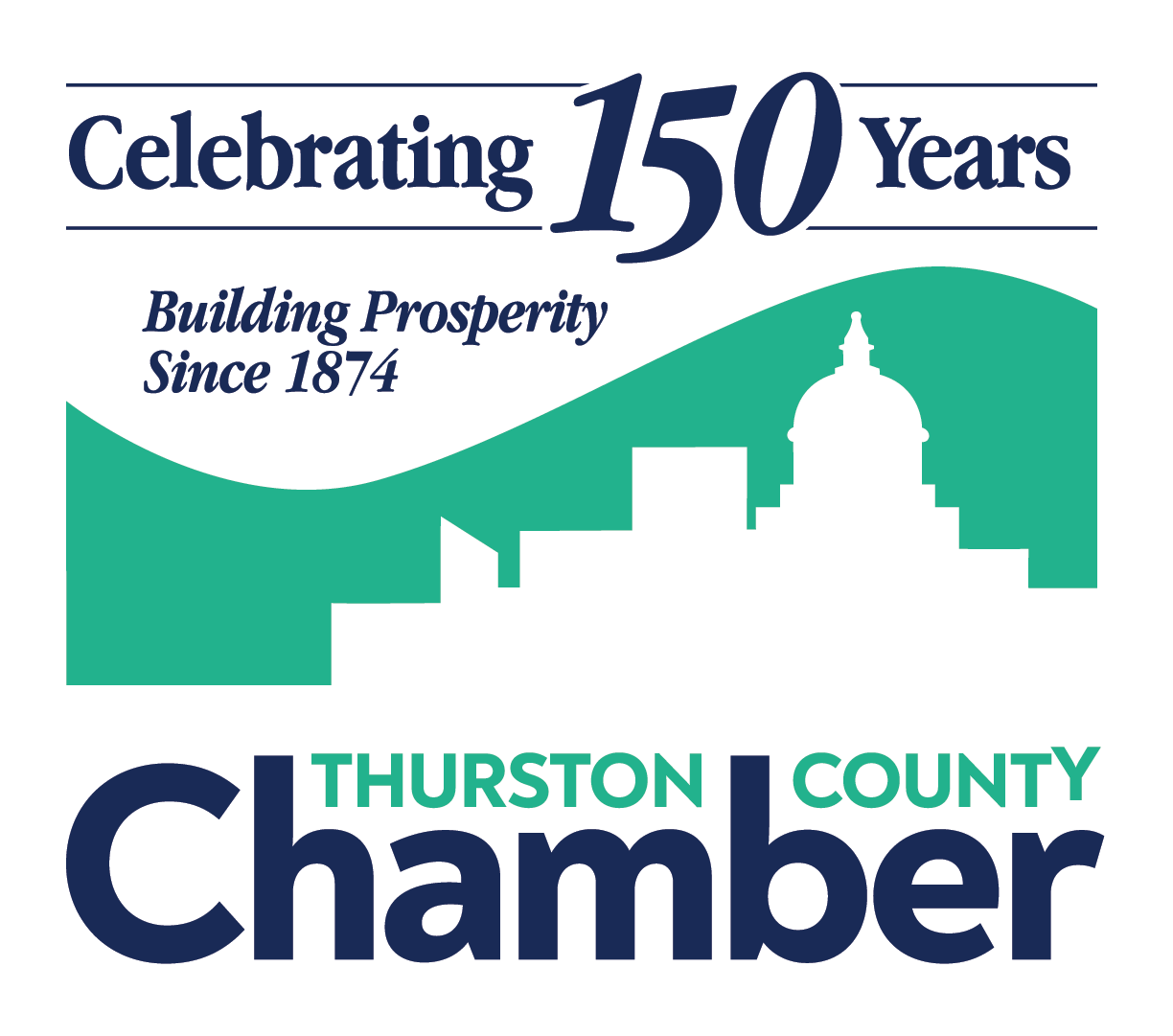The Thurston Green Business designation is a coveted award, given annually to over 100 deserving businesses. And among those winners, a select few are honored as the best of the best – the small, medium, large, and municipal “business of the year.” This year’s winners are true champions of sustainability, and they’ll be recognized at the upcoming April Thurston Green Business Forum on April 12. We’re thrilled to shine a spotlight on these remarkable businesses in this issue of the VOICE.
LARGE BUSINESS OF THE YEAR: The Evergreen State College
Congratulations to The Evergreen State College, the Thurston Green Large Business of the Year!
About


Evergreen’s academic community is committed to empowering students to define and shape their own learning experience. The staff don’t just teach facts and figures – they encourage students to ask questions, challenge assumptions, and think critically about the world around them. And by emphasizing collaboration and interdisciplinary learning, they are preparing students to tackle complex, real-world problems with creativity and resilience.
Evergreen’s commitment to social justice, diversity, environmental stewardship, and service in the public interest doesn’t stop there. They believe that education should be a force for positive change in the world. And that’s why they support and benefit from local and global movements for social justice, environmental sustainability, and public service.
How has COVID19 changed your business’s sustainability efforts?
We are committed to sustainability – pandemic or not. Despite the challenges posed by COVID-19, we’ve maintained our high standards for environmental stewardship and social responsibility.
As a Washington State institution, we adhere to the Department of Enterprise Services’ Green purchasing guidelines. This means that we make thoughtful, strategic decisions to buy goods and services that have less negative environmental and health impacts than similar products. By prioritizing environmentally preferred purchasing, we’re doing our part to reduce waste, conserve resources, and promote a healthier planet.
But sustainability is about more than just purchasing decisions. It’s about cultivating a culture of sustainability across all aspects of our institution. That’s why we’ve taken steps to reduce our carbon footprint, minimize waste, and promote sustainable practices throughout our campus. From using renewable energy sources to encouraging sustainable transportation options, we’re committed to creating a more sustainable future for our students and the wider community.
So while COVID-19 may have presented new challenges for our sustainability efforts, we haven’t let it slow us down. Instead, we’ve redoubled our commitment to sustainability and continued to find innovative solutions to reduce our environmental impact. Join us in our mission to create a more sustainable future – pandemic or not.


Since our founding in 1972, we’ve been at the forefront of eco-friendly technology and practices, offering LEED-certified buildings, composting and recycling options, and support for alternative transportation. Our student-led programs, such as the Bike Share program, RAD services, and the Flaming Eggplant Café, make it easy for everyone to live, work, and play with sustainability in mind.
We also offer a variety of undergraduate and graduate programs that focus on policy, the environment, and more. Whether you’re interested in studying environmental science, sustainability, or public policy, we have a program that will help you gain the knowledge and skills you need to make a positive impact on the world.
And when it comes to buying and selling green, we’re committed to making sustainable choices at every step of the way. From sourcing eco-friendly products to promoting sustainable transportation options, we’re dedicated to building a more sustainable future for ourselves and future generations.
Where have you been the most successful in your green business practices? What have been the biggest challenges?
One of the areas where we’ve been most successful is in our efforts to replace natural gas-fired domestic hot water heaters with heat pump water heaters. By making this switch, we’re not only reducing our carbon footprint but also promoting a more efficient and cost-effective solution for our campus.
We’re also making significant progress in transitioning our fleet vehicles to battery-electric vehicles and building out our charging infrastructure. While this transition hasn’t been without its challenges, we’re committed to finding innovative solutions that promote sustainability while also meeting the needs of our campus community.
But perhaps one of the biggest challenges we face is ensuring that our sustainability efforts are comprehensive and impactful across all areas of our institution. That’s why we use AASHE STARS (Sustainability, Tracking, Assessment, and Rating System), a third-party tool specifically designed for Higher Education Institutions. By leveraging this tool, we’re able to assess and track our sustainability efforts across a wide range of areas, from campus operations to community engagement.


Thanks to a $1.3 million grant from Puget Sound Energy, we were able to undertake a massive project to improve energy efficiency across nearly 50 buildings. The upgrades to our campus steam system were so successful that they reduced natural gas consumption by 10% in 2022 compared to pre-pandemic levels. By replacing steam traps, condensate receiver sumps, and installing a new surge tank and deaeration tank steam vent heat recovery unit, we were able to save over 141,000 therms – equivalent to heating 235 homes for a year.
However, it wasn’t all smooth sailing. Tackling a project of this size was a significant challenge, and there will always be more work to be done as new technologies emerge. But despite the obstacles, we persevered and succeeded in creating a more energy-efficient environment.
We also completed a significant renovation in a 70,000 square-foot laboratory building, which included numerous energy-efficient HVAC elements. Plus, we have been a participant in the PSE 100% Green Power Program since 2005 and also participate in Tacoma Public Utility’s Program for our Tacoma Campus.
Top Featured Photo, from left to right: Chief Administrative Officer William Ward, CELTC Director Dr. Tamsin Foucrier, President Dr. John Carmichael, Speedy the Geoduck, Executive Vice President, Dr. Dexter Gordon, MES Student and Sustainability Fellow Emma Wright, MES Student and Sustainability Fellow Olivia McGoldrick, Director of Sustainability Scott Morgan and CCAS Assistant Director Michael Joseph.
Other News
Upcoming Events
Picture your ad here!


Both rectangle and banner ad spaces are available for members. Download our sizes and pricing sheet for more information by clicking the button below.
